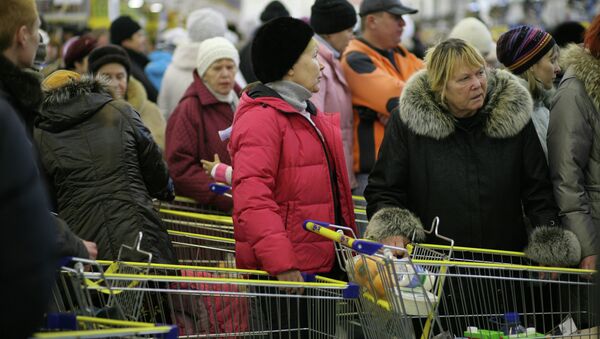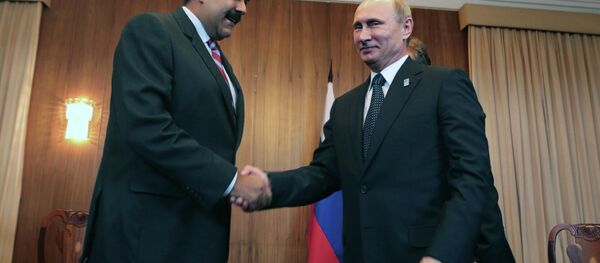According to Dvorkovich, the authorities will implement direct price management in case food prices increase by more than 30%. Deputy PM added that, at this point, the government has not yet used all of its tools of economic regulation; however, the cabinet has been reluctant to freeze prices concerned of possible scarcity in goods.
Last December several select foodstuffs appreciated by more than 30%, best illustrated by the well-publicized buckwheat drama. In January 2014 1 kilogram of buckwheat was worth 23.5 roubles on the average, while at this point its price stands at 62.5 rubles. Russian-made cheese appreciated by 30%, from 280 roubles per kg to 360 roubles now.
Russia is now lacking laws, allowing governmental price management, as free market has been dominant in this nation since the collapse of Communism in early 1990s. However, the necessary legislation can be easily and quickly adopted in the Parliament in a matter of days.
Russian-made foods have also appreciated significantly during the last several months. Among the reasons are lack of market competition with the imported goods, and the fact that up to 90% of agricultural commodities (mainly, seeds, machinery and fertilizers are also imported. The recent slump in the rouble’s FX rate rendered most imported goods up to twice as expensive as they were before the economic turmoil.
The government previously discussed a possible implementation of regulation in pharmaceuticals prices. Meanwhile, the Federal Anti-Monopoly Service is accepting citizens’ complaints of unreasonably high prices on foods and petrol.


